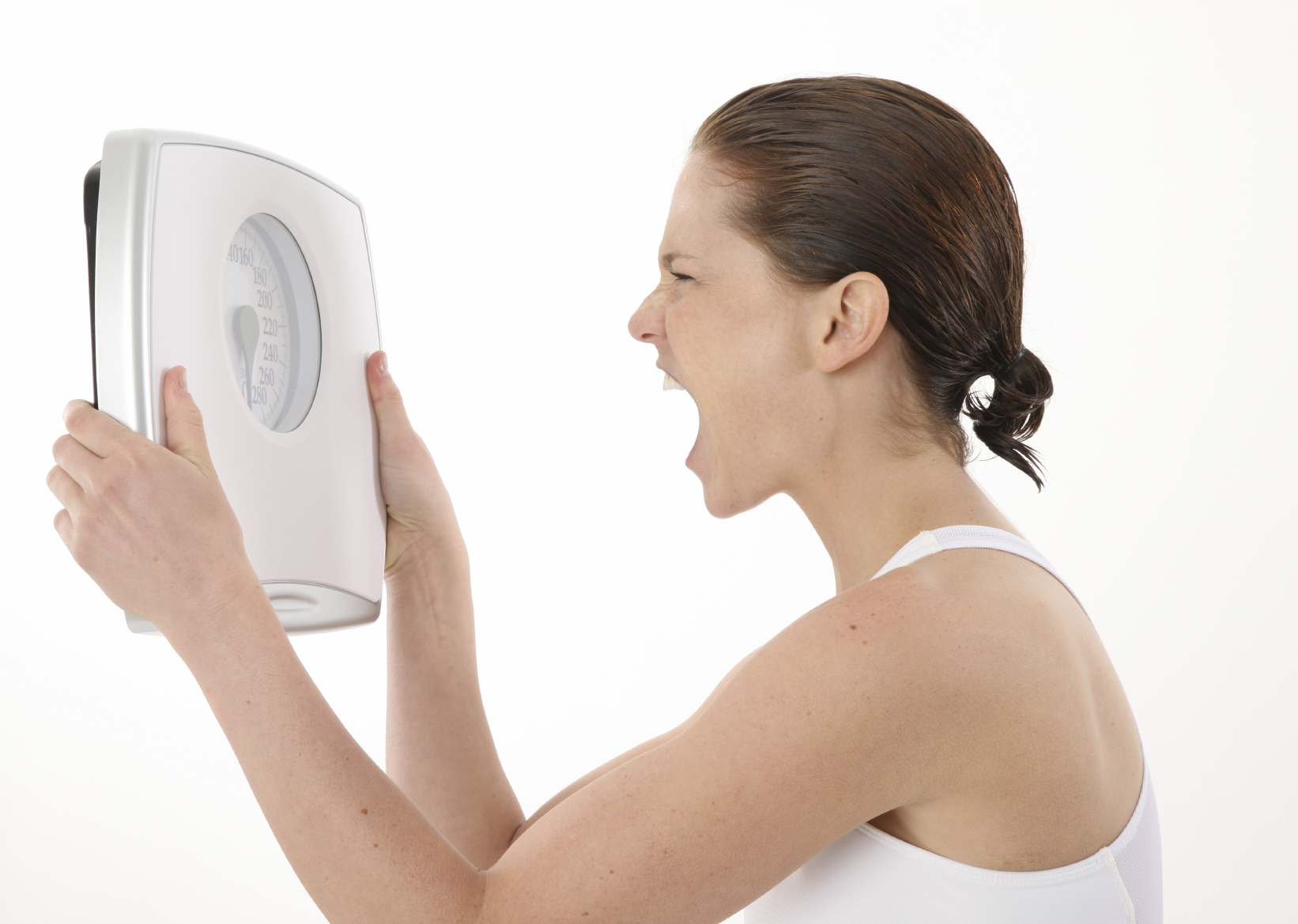Help! Weight Loss Surgery Isn’t Working for Me!

I see this lack of confidence time and time again in the forums. Weeks or a month after surgery, gastric sleeve, gastric bypass, lap-band, and other Weight Loss Surgery (WLS) patients start to wonder whether Weight Loss Surgery was the right choice. Most often, they are disappointing in the number of pounds they have lost, and they wonder, “Am I going to be the Weight Loss Surgery patient who fails?”
I can say this with confidence: If you follow the Weight Loss Surgery diet, you’ll lose weight.
“I’m Not Losing Weight Fast Enough!”
That’s a common post on BariatricPal. The poster is usually a week or a few weeks post-op, and worries their weight loss isn’t fast enough. They think their “slow” rate of weight loss means Weight Loss Surgery didn’t “work” for them. They think they will never be able to lose significant amounts of weight, since WLS was a last-ditch effort to lose weight and get healthy after years of dieting didn’t work.
But in most cases, these fears just aren’t true. Don’t misunderstand me. I’m not saying these fears are unreasonable. I understand them perfectly. I, and probably every Weight Loss Surgery patient, wondered whether it would work for me. And the answer for me, and for everyone who followed their Weight Loss Surgery diet, was “YES!”
The Perfect Storm for Frustration
So why the panic? I like to think of the first few weeks or even months after weight loss surgery as a perfect storm for generating doubts. It’s a time when the following are true.
- You realize you have made a decision that led to a change to your body that is irreversible (in the case of sleeve gastrectomy) or meant to be permanent (in the case of the gastric bypass), or
- You realize a lifetime commitment to changing your eating habits and lifestyle is a pretty big deal.
- You have not eaten solid foods for weeks, or even more if you had a liquid diet for long before surgery, and it’s getting you down.
- You are struggling in your daily life as you try to make time for exercise or you find your family members continue to eat junk food in front of you.
All that is enough to get anyone down before you even start thinking about the reason you got the surgery in the first place – to lose weight! If you doubt you’re losing weight “fast enough”, you might start wondering if you made the wrong decision when you got Weight Loss Surgery – and that’s a depressing thought.
Crunching the Numbers
Almost without fail, the BariatricPal member who posts about disappointing early weight loss is losing weight quite quickly. The only person who is disappointed in this number, typically, is the member him or herself. I’ve seen members post with concerns about losing “only” 20 pounds in the first month, or “only” 10 pounds in the first week. Guess what. That’s great!
Think about it. A general round number for great first-year weight loss after Weight Loss Surgery is 100 pounds. That’s an average of 2 pounds a week, or 8 pounds a month. If you lost 20 lbs in your first month, you’re doing fantastic! To hit 100 pounds in your first year, you won’t even lose a pound every three days! So don’t worry if the scale doesn’t plummet every single day. If you’re eating right, you’ll lose weight.
Try to keep yourself motivated by keeping it all in perspective. Another motivating thought is to consider how long it took you to gain the extra weight. 5 years? 10 years? Your whole life? And now you have a chance to lose it within 1 or 2 or 5 years? That’s a pretty good bargain, right?
Recovery Now for Weight Loss Later
Now, I know you’ve prepared for Weight Loss Surgery for a long time, and you’re eager to lose weight. But really, you’re not quite ready to focus on weight loss if you’re still recovering from surgery. It’s far more important to heal properly. That’ll help you lose weight faster later and avoid complications that’ll set you back, not to mention cause possibly serious health problems.
So, no matter how frustrated you are, stay positive, and focus on following your surgeon and nutritionist’s instructions to the letter. Continue to eat a liquid diet and then pureed foods without cheating and sneaking in solid foods. Use this time to establish a pattern for your long-term success. Learn to measure your food, and to set aside time for food prep and for exercise.
Weight loss surgery is a lifetime adventure, and that realization can really hit hard in the early days and weeks post-op. You can get through this tough period by focusing on one day at a time and not worrying about your rate of weight loss. Measure your success not by the scale number, but by how well you stick to your plan.
Great article. I do wonder, where you came up with 100lb weight loss. All the predictors I have looked at say I would lose 70-80% excess weight. I feel like I am on the right track, but have fallen prey to some of the thoughts described in the article.
The 100lb figure is an average I've seen from our members, but I think of 90-100 as sort of the common number that's given frequently. E.g., here's 90 lbs. http://www.nih.gov/researchmatters/november2013/11182013bariatric.htm and I think this works out similarly: http://www.ncbi.nlm.nih.gov/pubmed/23265120 .
As a newbie to this forum, the article was encouraging. I am still on the fence about surgery, it just seems so permanent and I guess there is a part of me that believes that I should be able to do this on my own. So, thanks again.
Ms954jkwd, you had surgery a month ago and you're "depressed " because you've "only " lost 14 lbs ? Thats an average of just over 3 lbs a week !! You're doing great !!! Loosing too much too fast is not a healthy way to keep the weight off, so remember "slow and steady wins the race !" Good luck ! Keep it up !
Thanks Alex for motivating me to stop obsessing over the scale and shift that focus more on the diet plan. I was one of the ones that felt like I wasn't losing fast enough, but that had a lot to do with my nutritionist telling me that as well. In 6 weeks I lost a total of 31 pounds at the time I saw her last week and she advised me that by 6 weeks I should have already lost between 45-48 lbs. Talk about a real downer...You're excited about any weight loss only for your nutritionist to say, "Sorry, you're losing weight too slow." Maybe I'm not the only one here who has a nutritionist who has criticized their weight loss. But after speaking to all of you I'm not concerned anymore. I'll lose at my own pace and remembering that this is not a competition.
Thanks Alex, awesome article. I am 3-weeks postop and am happy with my experience so far. I do read posts from members about losing slow. I haven't felt any sadness about weight loss. I am happy with each pound that is not there when I weigh myself. I have struggled as many others with losing a single pound and keeping it off at times. Therefore, I am very grateful for weight loss surgery. Battling Diabetes, High Blood Pressure, High Cholesteral and sleep apnea before surgery, I know this has saved my life. I do understand how those members feel and use how they feel as an inspiration to stay focused. I talk to my team and read posts from the veterans here to get me through.
Everyone is different, I'm pre op so? but every persons video I've watched on you tube lost 100lbs in 6 months as did a lady I met. She said she could just lay in bed & lose weight. One lady that had it years ago still falls in the obese range. From the reading I've done so far, I gather the first 100lbs is the surgery and after that it's about sticking to the diet and no getting around the exercise. I've read others saying they are a year or more out and their stomachs stretched so now they're back to eating a full plate of food. I asked my nurse about this. She said no, the pouch remains the same size as right after surgery. She said she can only force in 2 spoonful's, never gets hungry and has to remember to eat. Makes me wonder why we're born w/such a large stomach? I think people that gain weight back or never loose enough, weren't committed to making life changes and working out regularly. If I'm wrong, please correct me. My Dr said no scales at home, so I asked then why do you weigh me? lol I think it's more inches than weight, at least at times. Going by my nurse and what others have said. But, the first hospital I started with said the pouch would enlarge somewhat over time so I don't know for sure until I ask my Dr.










MBM1Forever 107
Posted
Great article. I do wonder, where you came up with 100lb weight loss. All the predictors I have looked at say I would lose 70-80% excess weight. I feel like I am on the right track, but have fallen prey to some of the thoughts described in the article.
Share this comment
Link to comment
Share on other sites